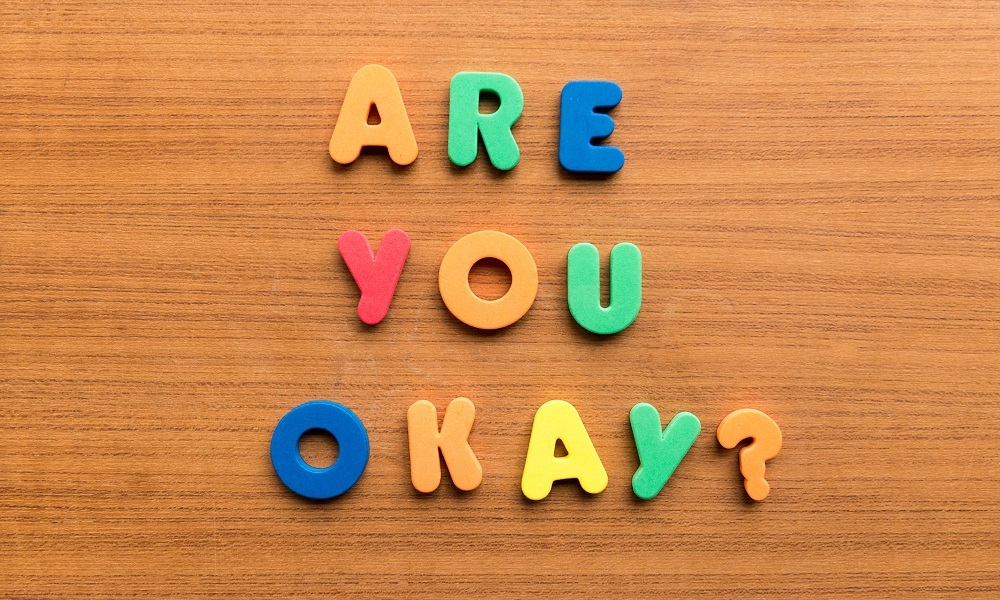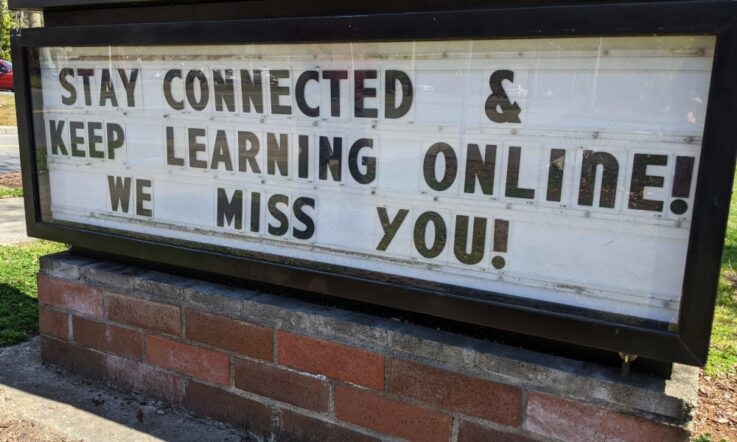While teaching is a highly rewarding career, it can also be very stressful. Looking after your wellbeing as a teacher can be challenging, especially with the extra pressures of the COVID-19 pandemic over the past few years.
In this Q&A, Claire Goodall, Young People and Education Manager at R U OK? shares how schools can build a positive help seeking culture, how staff can support their colleagues, and how to ask for help if you need it.
What are some of the signs to look out for, that can help teachers identify when a colleague might need some extra support?
It won’t always be obvious when someone isn’t okay and may need extra support but there are some key things to look out for. Firstly, look out for changes in what they are saying or expressing.
They could be confused, irrational or lacking self-esteem and confidence. It’s also important to think about what they are doing. Has their online behaviour changed, are they withdrawing, have they lost interest in their appearance and personal hygiene?
Another factor which is so important, is knowing what is going on in their life. This is why collegial relationships are so important. Factors which can impact someone’s wellbeing include relationship issues, loss of someone or something they care about, health issues or injury, and financial stress.
The most important thing to remember is, if you have noticed a change, no matter how small, trust your gut instinct and check in.
What if a colleague tells you they aren’t okay? What about if they say they are fine?
If someone tells you that they aren’t okay, it’s important to give them an opportunity to share how they are feeling and what is going on for them. Sometimes, someone listening and showing care is all that is needed. Open up the conversation in a space where they feel comfortable, in an environment that isn’t rushed or high traffic, so the conversation can be calm and not hurried.
If a staff member opens up to a colleague, it may mean that this is the person they feel comfortable speaking with, and where practically possible this should be enabled to allow the help-seeker and support person to continue their conversation.
If someone you are worried about tells you that they are fine, there are a few things you can do. Acknowledge that you are worried about them and let them know what you have noticed, for example, ‘I’m worried about you because you are usually so organised but I have noticed that you have been forgetting things’. If they still aren’t opening up, try checking in the next day, or suggest meeting up after or before work for a walk or coffee. It may take a few goes, but by being available you are showing them that you care.
If someone isn’t okay and you are worried about their safety, it is important that you help them access the help they need by providing options such as a helpline, local GP or EAP (Employee Assistance Program). You can also help them access these services.
What are some good first steps teachers can take in a school setting to ask for help if they need it?
Knowing who you can go to is so important for people in a school environment. This will vary from school to school and on the collegial relationships within that community. Developing positive relationships and allowing teachers to self-select who they go to will create a positive help seeking culture. Familiarity and trust amongst staff is an important first step to encouraging teachers to seek support when they need it.
Allowing opportunities for staff to reflect and chat about the big and small things will mean they feel empowered to reach out when they need it. Open discussions about mental health and self-care, and including these things in professional development plans will mean teachers know who and where they can go to for support when they need it.
What is an R U OK? culture, and why is this important for schools to foster?
An R U OK? culture is one built on mutual respect, trust, authenticity and a willingness to support those in your community who might be struggling.
Building that culture is a team effort and we can all play a role in encouraging R U OK? conversations between colleagues. By building a culture where people feel emotionally safe, included and valued, staff will not only feel supported themselves, but will be able to support those in the community if and when they need it.
Thinking in a school context, what can teachers do to help create an R U OK? culture in their staffroom, and what can leaders do?
All staff can contribute to building an R U OK? culture. Fostering positive collegial relationships across all levels of the school community is a great place to start. One way to do this is to encourage staff to meet one-on-one or in small groups to establish meaningful relationships away from whole staff meetings and agendas.
Authentic collegial relationships could also be formed through staff mentoring programs and social activities away from the workplace.
Building in time to acknowledge staff contributions, celebrate school successes and providing opportunities for staff to play a role in decision making can help build an environment where staff feel valued and comfortable. Regularly checking in when things are going well is just as important as checking in when you are worried about someone, as this can help build a culture of respect and trust.
If you or anyone you know needs help, call Lifeline on 13 11 14
Further reading:
Check out our Wellbeing publication, where you can find lots to read on the topic of educator wellbeing outside of school.
R U OK? Has a range of resources specifically for primary and secondary schools.
As a teacher, have you noticed any changes in how any of your colleagues are acting? Have you noticed them becoming more withdrawn, lacking confidence or self-esteem? If so, think about where you could find a quiet place to ask them R U OK?, following the suggestions offered by Goodall in this article.
As a staff member, consider who you feel most comfortable talking to when you aren’t okay. Is there another staff member you can reach out to at work, or who you can speak to over a coffee on the weekend?



